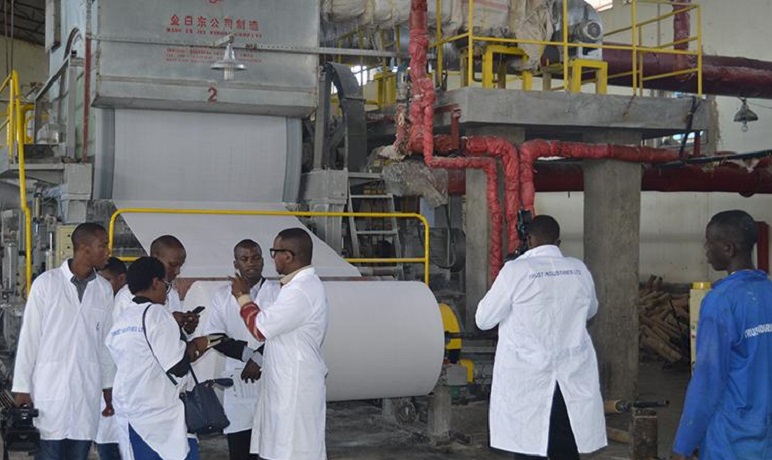
The Business Confidence Monitor report compiled by the Nigeria Economic Summit Group and Stanbic IBTC reveals that the Nigeria’s manufacturing sector records poor business performance in January, 2025
According to the report, the manufacturing sector scored -0.66 on the Business Confidence Monitor (BCM) Index for January 2025.
This reflects a mildly negative performance but a notable recovery from its December 2024 score which was -2.43.
The manufacturing sector had a negative performance alongside the non-manufacturing sector (-4.64), the Services sector (-1.40), and Trade (-0.84). “However, these sectors showed relative improvement compared to December 2024,” the report notes.
In contrast, Agriculture recorded a positive performance with a BCM index of +10.86.
The report further noted that four of the manufacturing sub-sectors assessed recorded mildly negative outcomes, while the others underperformed.
The sub-sectors that underperformed are:
Textile, Apparel, and Footwear
Chemical and Pharmaceutical Products
Plastic and Rubber Products
Motor Vehicles and Assembly.
It was noted that the Motor Vehicles and Assembly sub-sector “experienced a significant downturn.”
The report also notes that the underperforming sub-sectors “struggled with high production costs, weak demand, and supply chain disruptions.”
The subsectors with mildly negative performances include:
Food, Beverages, and Tobacco
Plastic and Rubber Products
Non-Metallic Products
Basic Metal, Iron, and Steel
These subsectors reportedly recorded “weak positive performances, supported by stable domestic demand and seasonal business activities.”
The report shows mixed trends in the manufacturing sector’s key sub-indices.
The Business Situation Index of the Manufacturing sector declined to +21.55 in January, from +24.44 in December.
The sector’s Investment Index dropped from +20.79 in December 2024 to -5.77 in January 2025.
In contrast, the Production Index rose significantly to +46.56 from +10.96 in December.
The Operating Cash Flow Index improved to +21.13 in January from +17.49. This is said to reflect higher output and better liquidity.
The report added that the Cost of Doing Business Index at +41.57 and the Price Index at -40.82, indicate “inflationary pressures and high interest rates.”
“Additional constraints included limited credit access (-5.62), weak exports (-3.55), and declining operating profits (-17.41). Despite signs of recovery, inflation, high financing costs, and supply chain disruptions remain key risks.
“To sustain business growth, manufacturers need policy support, improved credit access, and a stable exchange rate. Without strategic interventions, the sector’s recovery may remain sluggish,” the report states further.
It was stated that Nigeria’s business environment began the new year on a positive note, amidst a weak recovery.
The NESG-Stanbic IBTC Business Confidence Monitor’s (BCM) Current Business Index rose to +5.69 from +0.77 in December 2024. This is said to reflect “an uptick in commercial activity typical of this period.
The report adds that structural challenges in Nigeria’s business environment eased slightly, supporting the improved business performance observed during the month.
However, despite the positives, the report notes that high financing costs remained a critical constraint on both current performance and future growth expectations in business activities generally.
Ita added that reduced investment (-27.50) and declining price levels (-26.62) severely dampened overall business activity and demand.
Other challenges impacting business activities highlighted in the report include frequent power shortages, limited foreign exchange availability, and restricted access to finance.






